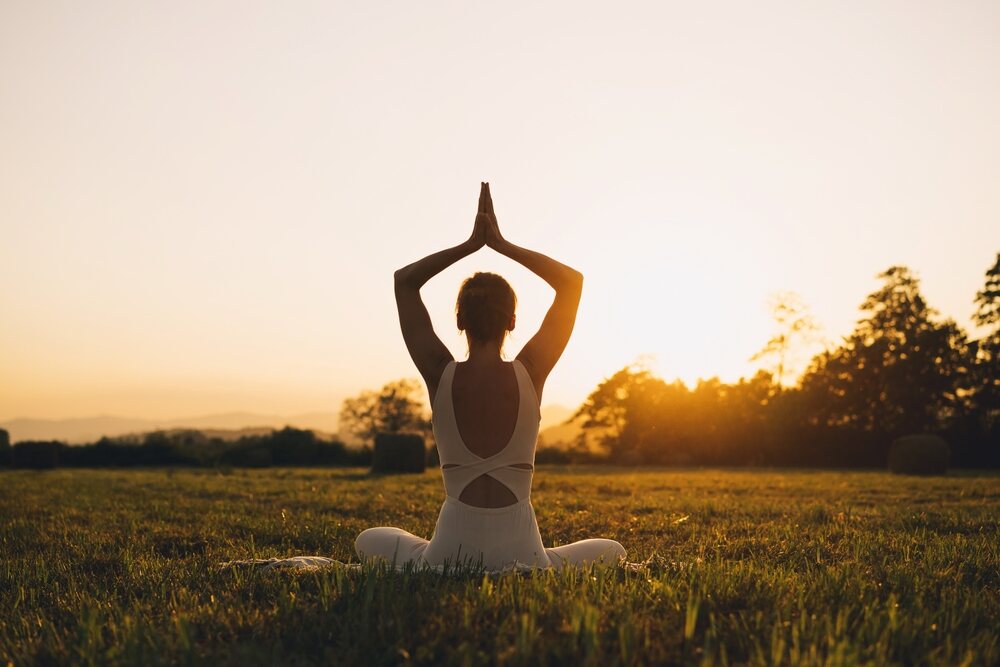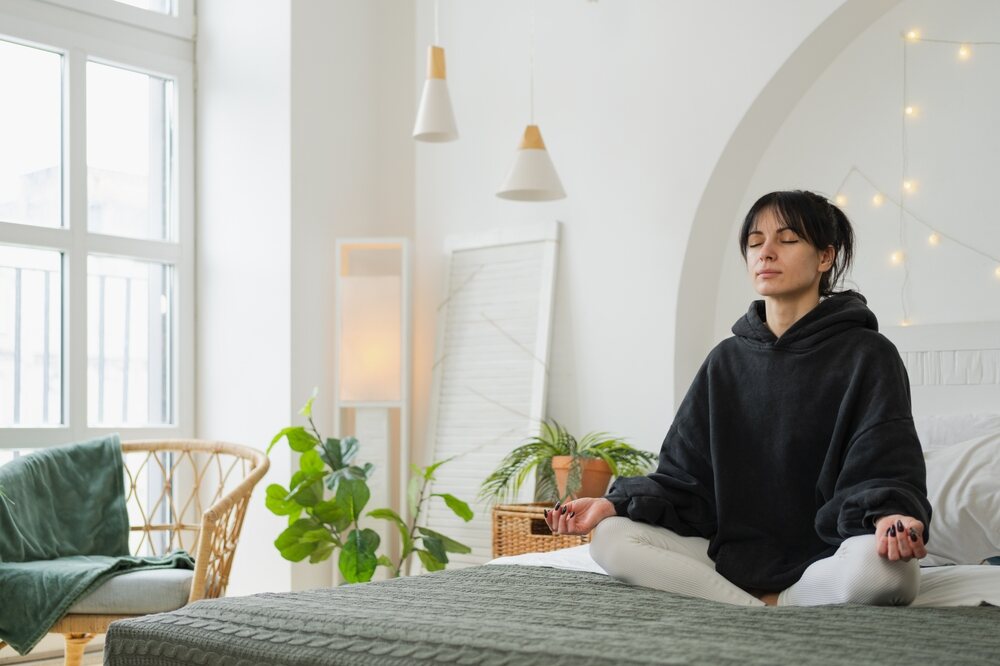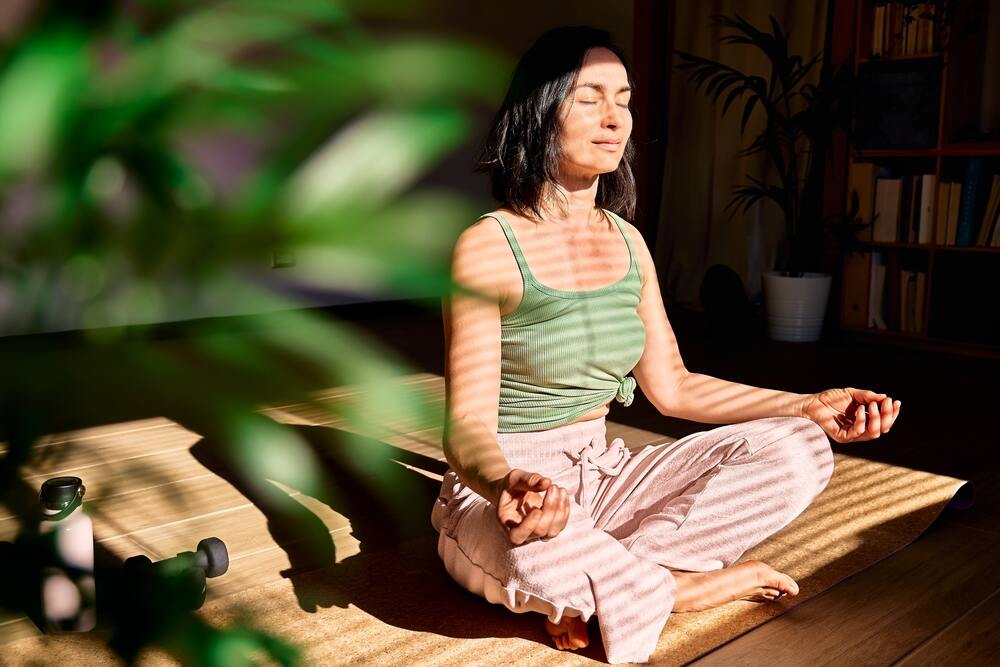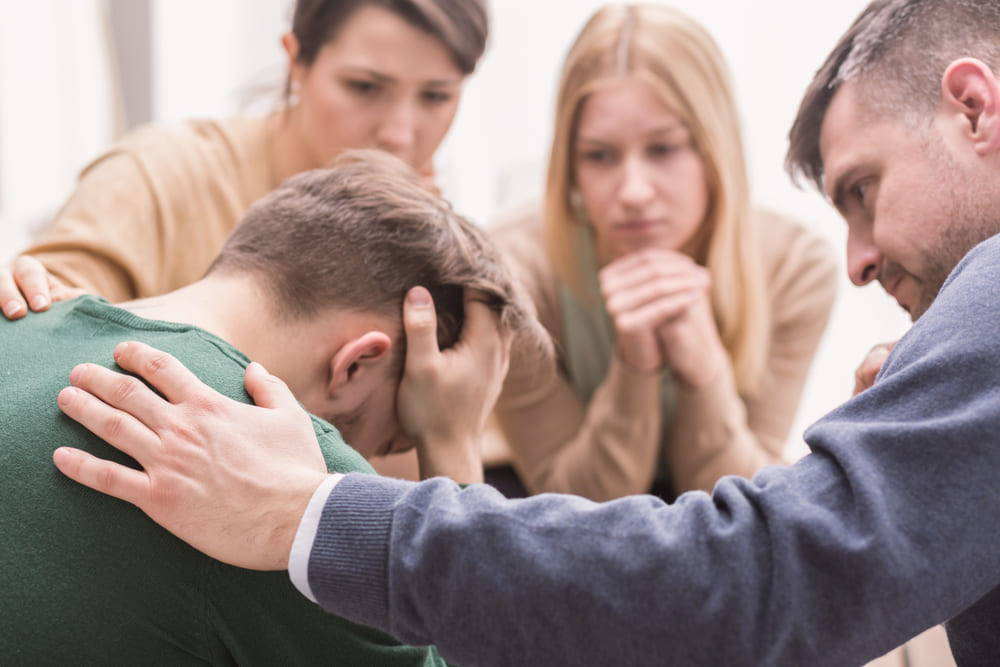Table of Contents
TL;DR:
- Yoga provides a holistic approach to addiction recovery, addressing physical, mental, and emotional aspects.
- It helps manage withdrawal symptoms, stress, and emotional regulation.
- Regular practice improves physical health, mindfulness, and self-awareness.
- Yoga classes foster community and support, crucial for recovery.
- Consistency and patience are key to reaping yoga’s benefits.
Recovering from addiction is a journey with challenges, setbacks, and victories. To succeed, people need a holistic approach that heals not only the physical side of addiction but also the mental and emotional scars it leaves behind. This has sparked more interest in trying out complementary therapies like yoga.
Research from NCBI shows that adding yoga to addiction recovery programs can help people on their path to overcoming substance use disorders. It’s no wonder that more and more people are turning to this ancient practice as a valuable tool.
Let’s explore the power of yoga for addiction recovery.
Understanding the Grip of Addiction
Addiction is a complex and chronic disease that impacts not just the person but also their family and community. It’s marked by a compulsive need to seek and use, even when it causes harm. This ongoing cycle can lead to health problems, strained relationships, money troubles, and legal issues.
The emotional and mental strain can be huge, leaving people to deal with anxiety, depression, guilt, and shame.
On top of that, societal stigma and misunderstanding can make it even harder for those trying to get help.
This is where yoga for recovery from addiction can really shine.
Yoga offers a holistic way to tackle not just the physical symptoms of withdrawal but also the deeper emotional and mental wounds. By promoting mindfulness, self-awareness, and emotional balance, yoga helps people navigate the ups and downs of recovery and build a strong foundation for lasting sobriety. It’s a journey of self-discovery and healing, where yoga and addiction recovery come together to create a path toward wholeness.
The Benefits of Yoga for Addiction Recovery
Yoga, which started in ancient India, is much more than just physical poses. It’s a holistic practice that brings together the mind, body, and spirit. With a mix of poses, breathing exercises, meditation, and guiding principles, yoga offers a well-rounded approach to well-being.
Physical Benefits
Addiction often takes a toll on the body, leaving people feeling drained and disconnected. Yoga offers a gentle but effective way to start healing and rebuild physical health.
Regular practice can:
- Improve flexibility, strength, balance, and coordination
- Boost cardiovascular health
- Help you sleep better
- Ease chronic pain
Mental and Emotional Benefits
The mental and emotional changes that yoga can bring are just as, if not more, important than the physical benefits.
You’ll be able to:
- Develop mindfulness and boost self-awareness
- Lower stress, anxiety, and depression
- Find inner peace and emotional balance
Yoga and Addiction Recovery: Forging a Path to Healing
The powerful benefits of yoga make it a great match for helping people in addiction recovery. Let’s take a closer look at how this ancient practice tackles some of the key challenges along the way.
Stress Reduction: Taming the Triggers
Stress is everywhere, and for people in recovery, it can be a big trigger for relapse.
Yoga’s focus on deep breathing, mindful movement, and meditation helps activate the body’s relaxation response, easing stress. By managing stress through yoga, individuals can build healthier coping skills and lower the chances of turning to substances or harmful behaviors when things get tough.
Mindfulness and Self-Awareness: Illuminating the Path
Mindfulness, which means staying fully present without judging, is key to yoga. By practicing mindful movement and focusing on your breath, you build a stronger connection to your body and mind.
This self-awareness helps you spot triggers and cravings as they come up, giving you the chance to make thoughtful choices instead of reacting impulsively.
Emotional Regulation: Riding the Waves
Addiction can leave people dealing with tough emotions like anxiety, anger, and guilt. Yoga offers a safe space to explore and process these feelings in a healthy way.
Through movement, breathwork, and meditation, individuals learn to notice their emotions without being overwhelmed by them. This emotional balance builds resilience and gives people the tools to handle life’s challenges without turning to addictive behaviors.
Community and Support: Strength in Connection
Yoga classes can create a strong sense of community, which is so important for people in recovery.
Practicing alongside others builds a supportive environment where you feel understood and encouraged. This connection helps fight the isolation that often comes with addiction, offering a network of support and inspiration.
Getting Started with Yoga in Recovery
Starting a yoga journey can be exciting but also a bit overwhelming, especially if you’re in recovery. Here are some tips to help you get started and make the most of your practice:
Finding the Right Class
Not all yoga styles are the same. If you’re new to yoga or have physical limitations, look for beginner-friendly classes or ones designed for recovery. Gentle styles like Hatha, Restorative, or Yin yoga are great options to start with.
Many residential rehab centers also offer yoga as part of their program, giving you a safe and supportive place to explore the practice.
Modifications and Accessibility
Yoga is for everyone, no matter your physical ability. If you have any injuries or limitations, let your instructor know. They can suggest modifications and props to make poses more comfortable for you. The key is to listen to your body and respect what it needs.
Consistency and Patience
To get the most out of yoga, make it a regular habit. Try to practice a few times a week, even if it’s just for a short time.
Be patient with yourself. Progress might feel slow, but that’s okay. Both recovery and yoga are journeys, not destinations. Enjoy the process and celebrate every small win along the way.
Supporting Recovery Through Holistic Healing
At Infinite Recovery, we know how important it is to take a well-rounded approach to addiction treatment. That’s why we include spirituality therapy, like yoga and meditation, in our holistic program. Our goal is to create a safe, supportive space where people feel empowered to tap into their inner strength and build the tools they need to thrive in recovery.
If you or a loved one is struggling with addiction, know that you’re not alone. Contact Infinite Recovery today and let us guide you on your journey to a healthier, happier, and more fulfilling life.

















